Case Management Referral Form
If you’re a service provider, you can download our Case Management Referral Form here.
.
Mentoring Interest Form
Youth complete the Mentoring Interest Form, available here, as the first step towards being matched with a Volunteer Mentor.
Referrals must come from a service provider, but youth desire to participate leads the process. Learn more about Mentoring here.
Frequently Asked Questions
Tell me more about Jackson Street Youth Services



How many youth do you serve?
About 1,000 youth receive help annually from one or more of our programs.
What geographic areas do you serve?
We primarily serve Linn, Benton, and Lincoln Counties, but no one is turned away for geographic reasons. We have two 24/7 Shelters: one in Albany and one in Corvallis.
Why do youth need Jackson Street Youth Services?
There are various reasons why a youth or family may access shelter services; however, abuse, neglect, overwhelmed families, families in crisis, homelessness, and running away are the main issues we see.
How many employees do you have?
We have 40 staff. Most of our staff have graduated with degrees in the field of human development/family sciences, psychology, sociology, or public health; some are still in school. Almost half of our staff work in our 24/7 Shelters which are open year-round, even during holidays.
How are you funded?
Half of our budget comes from grants. One-third comes from the community: individuals, families, organizations, service clubs, churches, and businesses. Contracts and private foundation grants make up the rest of our funding. Details can be found in our Annual Report.
Do you charge for your services?
We do not charge for any of our services, and youth are NEVER turned away due to the financial status of the family. During our intake process for overnight shelter, however, we do collect income information, as required by our granting agencies.
Tell me more about your 24/7 Shelters
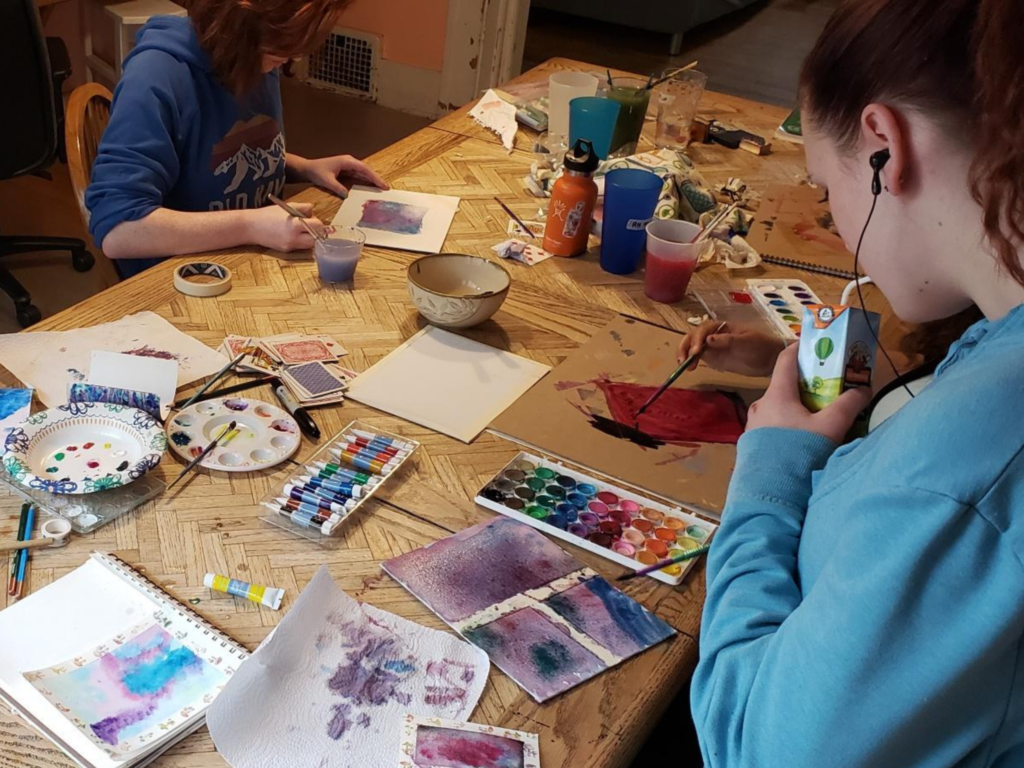
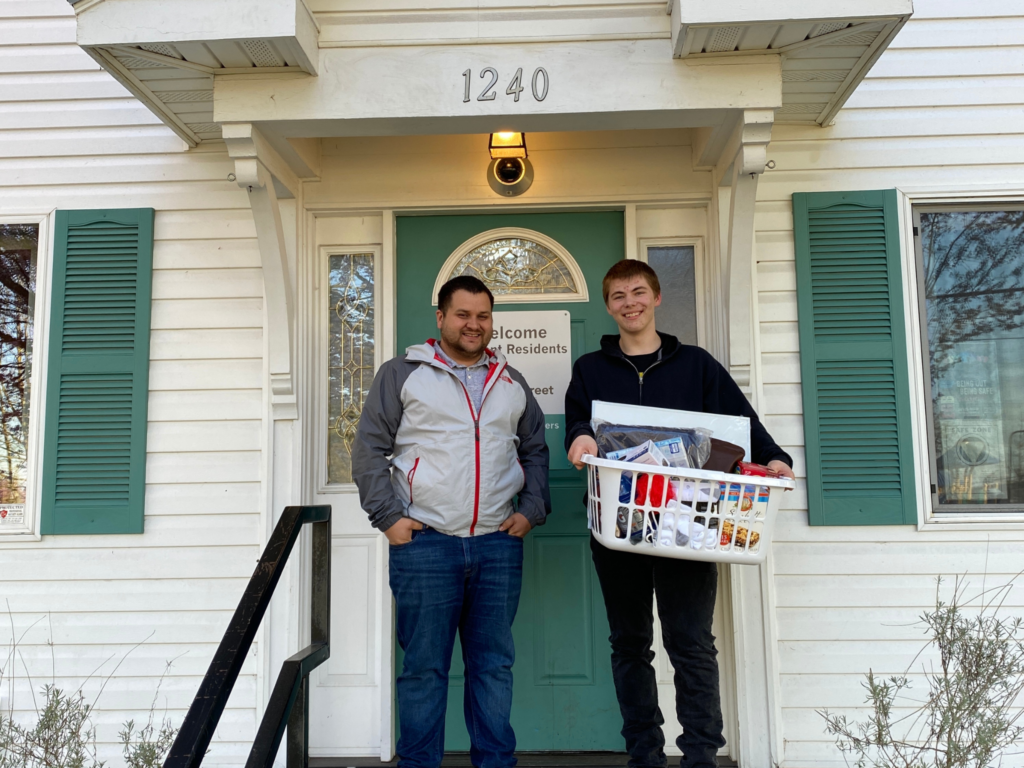

What ages of youth do you serve?
Our Overnight Shelters serve 10 to 17 year-olds.
How long can youth stay in the shelter?
All youth who fit our initial requirements are approved for a 72-hour stay, contingent on acceptable behavior. About 75% of our youth stay 21 days or less, but some youth who don’t have a safe housing alternative stay longer – occasionally more than a year. Other youth stay with us off and on over several months, depending on how things are going at home. For their safety and the safety of other residents, residents must observe our shelter guidelines in order to stay at either Corvallis House or Albany House.
How many beds do you have?
We have 22 beds across two counties. Corvallis House holds 12 beds: 6 male, 4 female, and 2 flexible (used for transgendered, age differences, and overflow). Albany House holds 10 beds: 5 male, 4 female, and 1 flexible.
How do the youth find you?
Youth often seek us out on their own, and parents or guardians seek us out for help as well. Many are referred from other agencies such as the Juvenile Departments, Mental Health Departments, and schools. Youth are also referred through our Outreach Team and Drop-In Centers.
What are the intake procedures and times?
Each youth who stays at the shelter participates in an “intake” interview in which the youth’s situation and issues are assessed and shelter guidelines are explained. We usually do intakes as needed, at a time scheduled with a parent, guardian, or referring agency. Occasionally, Jackson Street Staff request that an intake be delayed until a specified time (if the delay is safe for the youth) because we may be attending an activity, be short-staffed, or have too many duties to do an immediate intake.
Under what conditions will you not accept a youth?
Currently, we do not accept youth who are charged sexual offenders, who are fire starters, or who exhibit violent, aggressive behavior. Jackson Street Staff assess the safety of a youth who is suicidal and will make the decision to accept a youth or refer them to another care-provider on a case-by-case basis.
Can a youth come and go from the shelter without supervision?
All youth are supervised 24/7 while residing in the shelter. Their schedules are set and maintained by Jackson Street Staff, and staff know where each youth is at any point. If a youth stays in a shelter for more than 21 days, they may “earn” outings for job searching, appointments, or personal space. Some youth are granted permission by their referring agency or guardian to leave shelter unsupervised for specific periods/purposes and those plans are discussed and scheduled upon the youth’s entry into the shelter.
How do you supervise the youth?
Paid, trained staff work shifts 24/7/365. Student interns often assist with supervision duties, primarily on the day and evening shifts. An experienced supervisor is always “on-call” for emergencies.
Are youth required to go to school?
All youth must be enrolled and attending a state-certified educational program. This can be regular local schools, alternative schools, or other programs, including study for a GED. If a youth has already graduated or obtained their GED, they are required to work, seek employment, volunteer, or intern out in the community for 6-8 hours a day, 5 days a week.
What do the youth do during the day?
During the day, youth have different school schedules and appointments that are coordinated by the Staff. Sometimes a youth is sick and needs to stay in the shelter. After school, weekends and on school holidays, youth are involved in activities such as yoga, music, gardening, and art projects. They also visit the library, Skate Park, take walks around town, attend activities, and participate in group games. All youth are required to do daily household chores and help with weekend cleaning.
How involved do the referring agency and/or the family have to be?
We expect guardians and referring agencies to be a “team partner” in coordinating services and case management for a youth staying at Albany House or Corvallis House. We expect all parts of the team to stay in constant communication with Jackson Street regarding the plan and progress. We are not a hotel or a babysitter.
What happens if the guardians are not involved in the intake process?
All youth can remain in the shelter for 72 hours without parental notification. Usually, if the guardians are not involved with the youth, the referring agency will sign documents for the youth. Youth can check themselves in without their guardians, but we will ask the guardian to come into the shelter to sign the necessary paperwork so that we can continue to work with and house the youth. If guardians refuse involvement, we notify authorities and work with youth on independent living.
Can youth smoke at Jackson Street 24/7 Shelters?
Jackson Street sites are sober sites. In accordance with Oregon state law, no youth are allowed to smoke in or out of the shelter until they reach the age of 18. Youth over the age of 18 are not allowed to smoke while visiting or residing in the shelter. We confiscate smoking items as we find them, and we look for them during regular room checks and “pocket checks” done whenever a youth enters or returns to the shelter. Violations of the smoking/tobacco ban are reported to any authorities (probation officers, etc.) involved in the youth’s case.
What happens if a youth breaks the rules?
All situations are handled on a case-by-case basis to determine consequences. If the youth must leave shelter (for larger issues like violating the sobriety rule) we help them find a safe place to go. We occasionally keep a youth in shelter who should be asked to leave, but who does not have a safe place to go. In these rare instances, we determine other reasonable consequences.
If a youth is asked to leave, can they return?
We address all occurrences where a youth is asked to leave shelter on a case-by-case basis. Usually, there is a two-week restriction before youth can re-enter a 24/7 Shelter site.
Are you a lockdown facility?
We are not a lockdown facility and youth and guardians are informed that we do not lock our doors or restrain a youth who wants to leave the shelter without permission. Jackson Street Staff, are trained in de-escalating crises. If a youth chooses to leave without permission, we must report them as a runaway and immediately inform a guardian or agency contact.
Do you restrain youth?
We do not restrain or touch youth in any way (with the exception of providing first-aid for minor wounds). We will not physically restrain a youth who is acting out, but if necessary we will call emergency services to come and deal with the situation. All staff are trained in Non-Violent Crisis Intervention, Life Space Crisis Intervention, Collaborative Problem Solving, ACIST (suicide intervention), active listening, and basic mediation.
Do you serve pregnant youth or young families with children?
We serve pregnant youth through their 8th month of pregnancy. Youth with very young children (babies from birth to the crawling stage) can stay in shelter, but the shelter is not baby-proofed, so we can’t provide services after a child becomes mobile. Youth families (mother/father) can stay in the shelter together but will be housed in separate rooms. A child must stay with the mother.
Tell me more about Next Steps
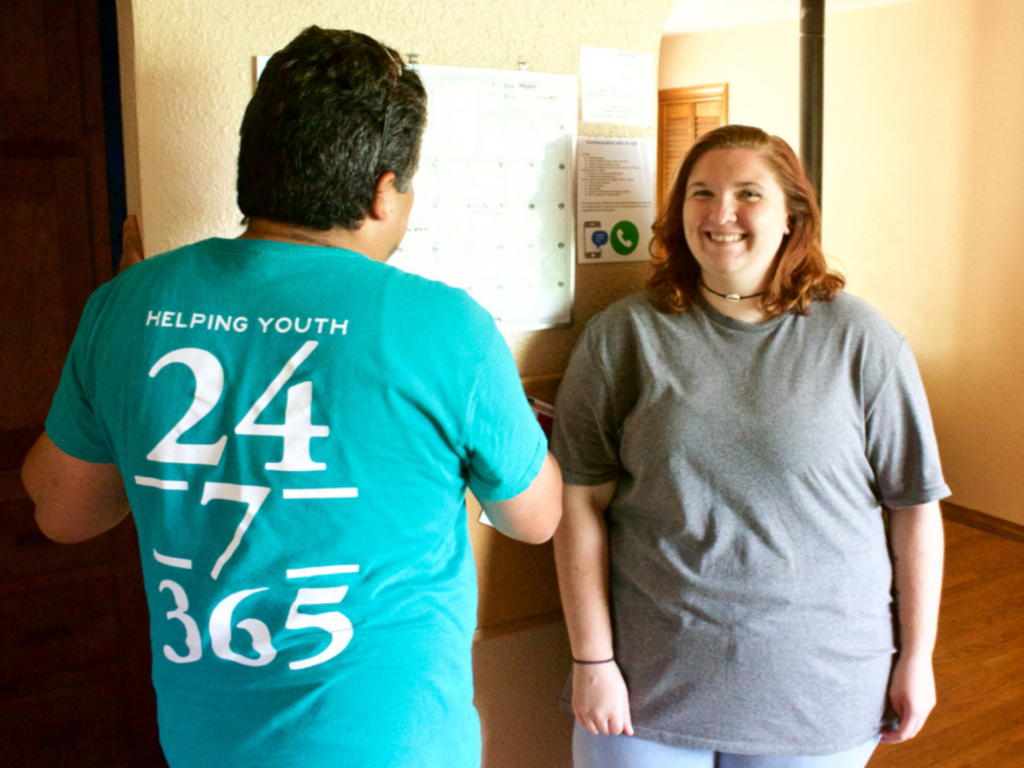
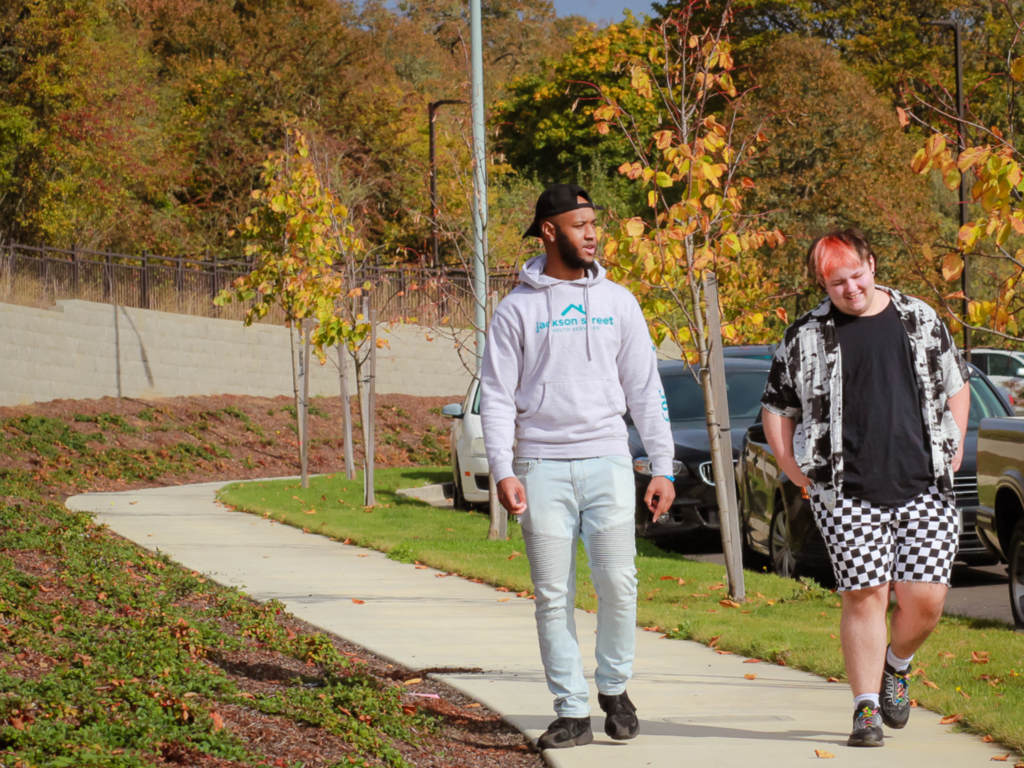
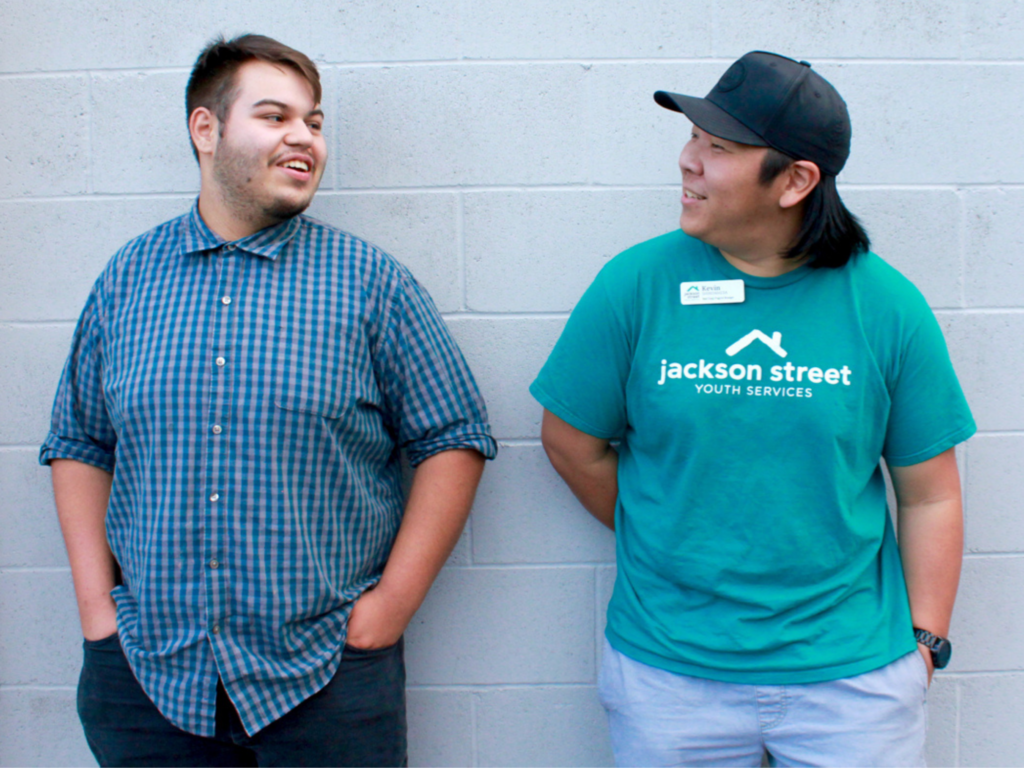
What is Next Steps?
Next Steps is housing and case management to build skills for independence while transitioning to adulthood.
How is the Next Steps Program different from 24/7 Shelters?
The Next Steps can provide young adults ages 18-20 with housing for up to 18 months. Housing and case management works with youth on independent skills and self-sufficiency to help them be productive and successful in the community.
Where is the Next Steps House located?
There are several confidential, residential sites located in Corvallis and Albany.
Who does Next Steps serve?
The Next Steps Program serves young adults ages 18-20 who are completing or continuing their education. Once we are able to gain some stability in the program and obtain federal funding, the program will expand in ages. Youth from Linn, Benton, and Lincoln Counties can access this program. We currently have a total of 12 beds.
What are the Next Steps eligibility requirements?
Youth need to be able and willing to work with an individual case manager on setting and accomplishing goals to help them toward their ideal future. Youth will need to be able to maintain sobriety and live in a group setting with other youth.
Will Next Steps residents pay for services?
The youth in this program are asked to pay a monthly “rent” on a sliding scale fee (according to income) that Jackson Street puts into a savings account for each youth to be given back to them at the time of completion of the program.
Tell me more about your Aftercare Services

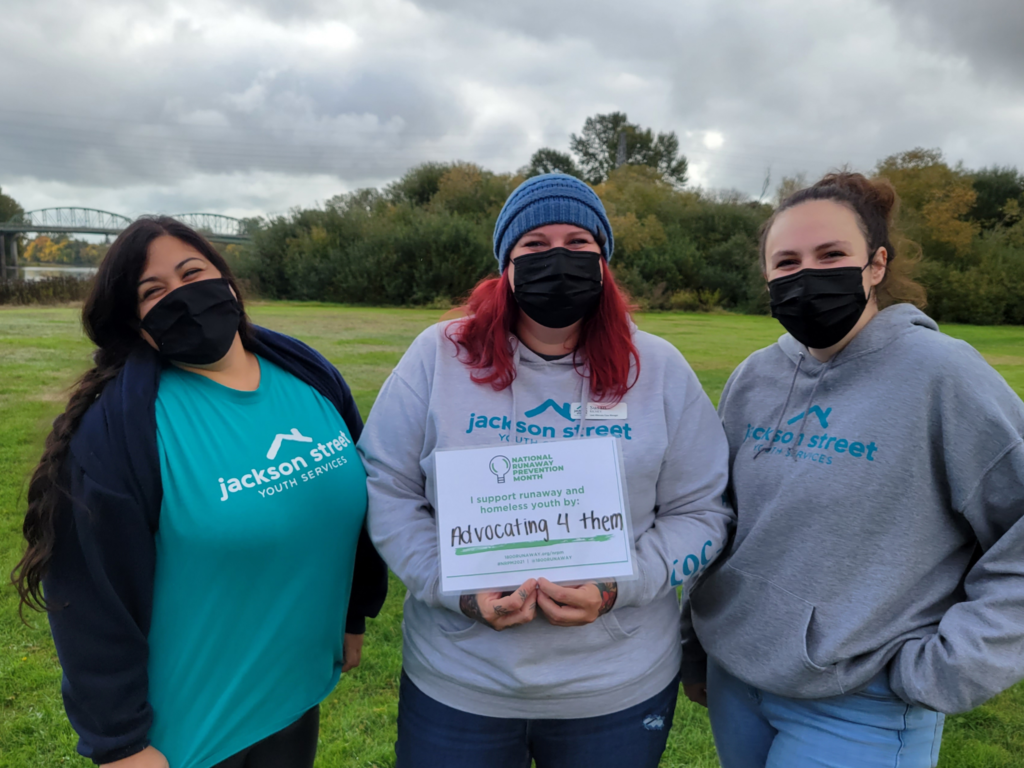

What happens to the youth after they leave?
Before a youth leaves the shelter, we work with families and/or referring agencies to either reunite the youth with their parents/guardians or to find another safe option. We are proud to say that many of these youth keep in touch with us and are continuing their education.
What kinds of help is available in Aftercare Services?
A Jackson Street Case Manager can work with the youth, their guardians, or the whole family for up to 1 year after exiting the shelter. This looks different for each family and may be a monthly phone call to check-in, helping make appropriate referrals, or more regular case management meetings to help youth set and accomplish a series of goals.
Is a youth required to enter Aftercare Services?
No. This is a voluntary program.
Tell me more about other Support Services you offer
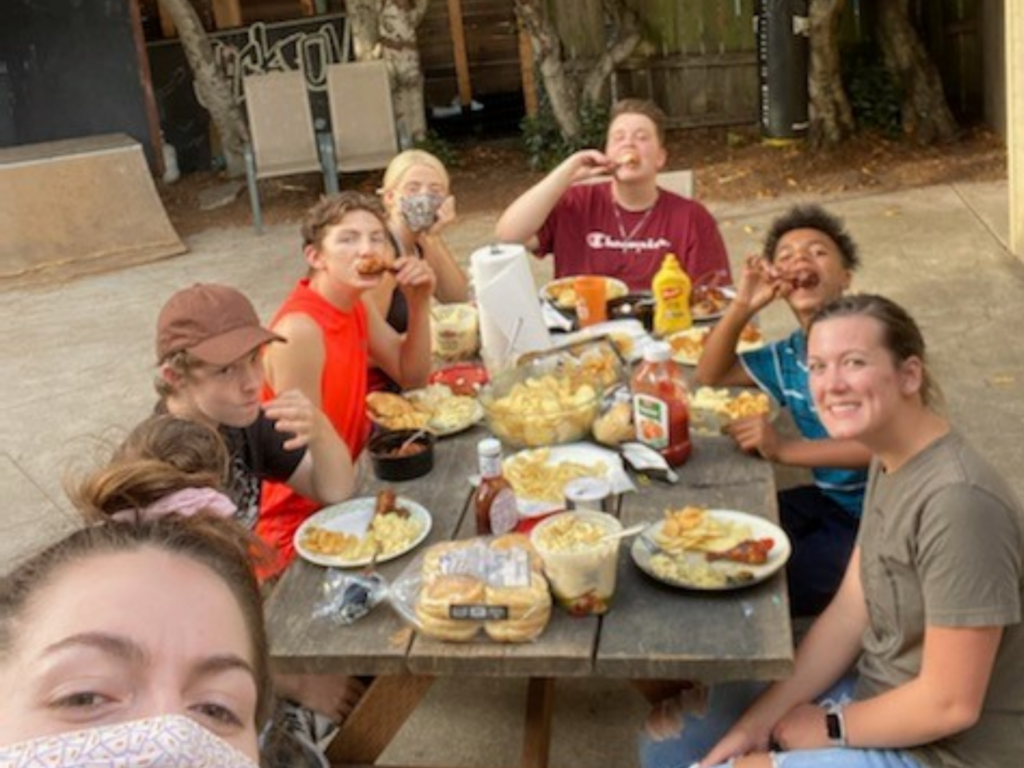
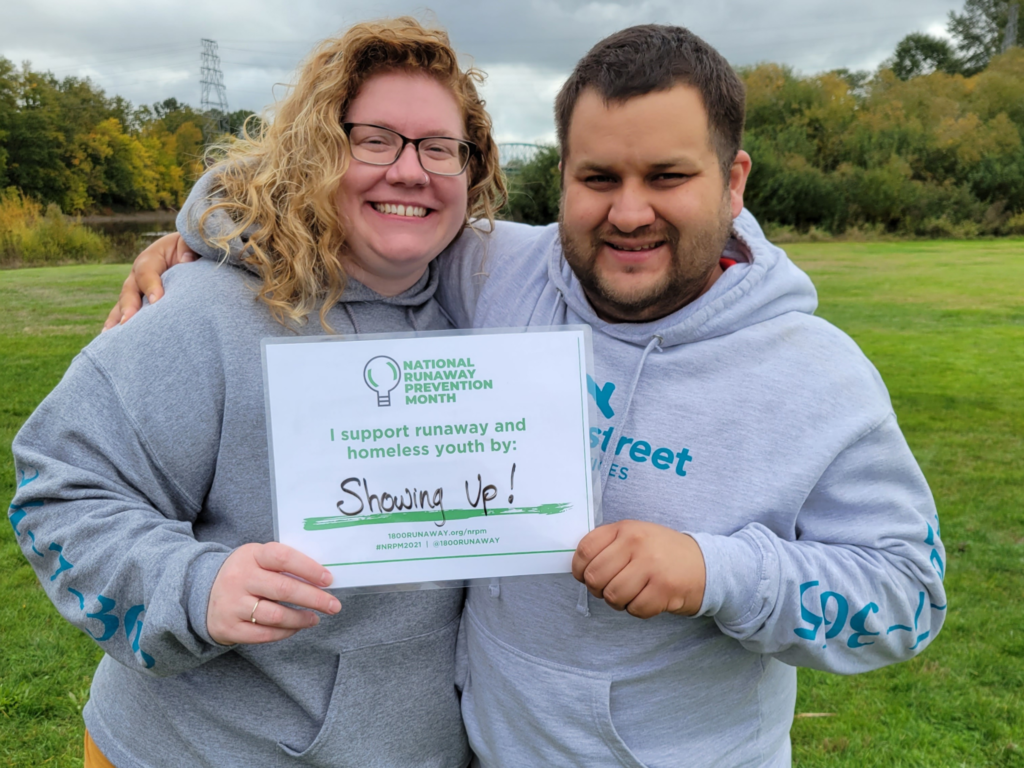

Do you provide counseling services?
Our staff members are not certified counselors and are not able to assist families with counseling needs. However, we make referrals to other counseling agencies if the family needs counseling services. Jackson Street staff are trained and very capable of providing youth and families with mediation services to help defuse a situation and allow everyone to return to a safe and stable home. All staff are trained in Non-Violent Crisis Intervention, Life Space Crisis Intervention, Collaborative Problem Solving, ACIST (suicide intervention), active listening, and basic mediation.
What other services do you provide to youth and families?
- Individual Case Management: Youth who stay in the shelter for more than 72 hours are provided with a case manager who will work with them to set and accomplish a variety of individualized goals. These trained staff members can also work with the family to ensure a safe and healthy situation at home when the youth returns.
- Peer Support 541 (P.S. 541) skills groups
- Activities: All youth living in shelter are required to participate in all planned activities. Youth who have accessed shelter before but are no longer living there are invited back to attend shelter activities. Activities include volunteers coming to shelter to lead yoga, art projects, or music lessons, and also include going out into the community and volunteering at places like SAGE garden. Past residents are invited to participate in these activities.
- Jackson Street Mentoring
- Education Assist
- Street Outreach: We have expanded Street Outreach efforts throughout Linn, Benton, and Lincoln Counties. This program serves ages 10-24. Street Teams, made up of trained staff and volunteers, work to establish positive relationships and can offer basic hygiene and cold weather items, and referrals as needed.
- Information and Referrals: Youth will be linked to existing services in the area such as family therapists, medical care, job training, etc. as needed.
- Crisis Line: Assistance, advice, and referrals for youth and families in crisis are available by phone 24 hours a day.
Tell me more about COVID Vaccine Clinics

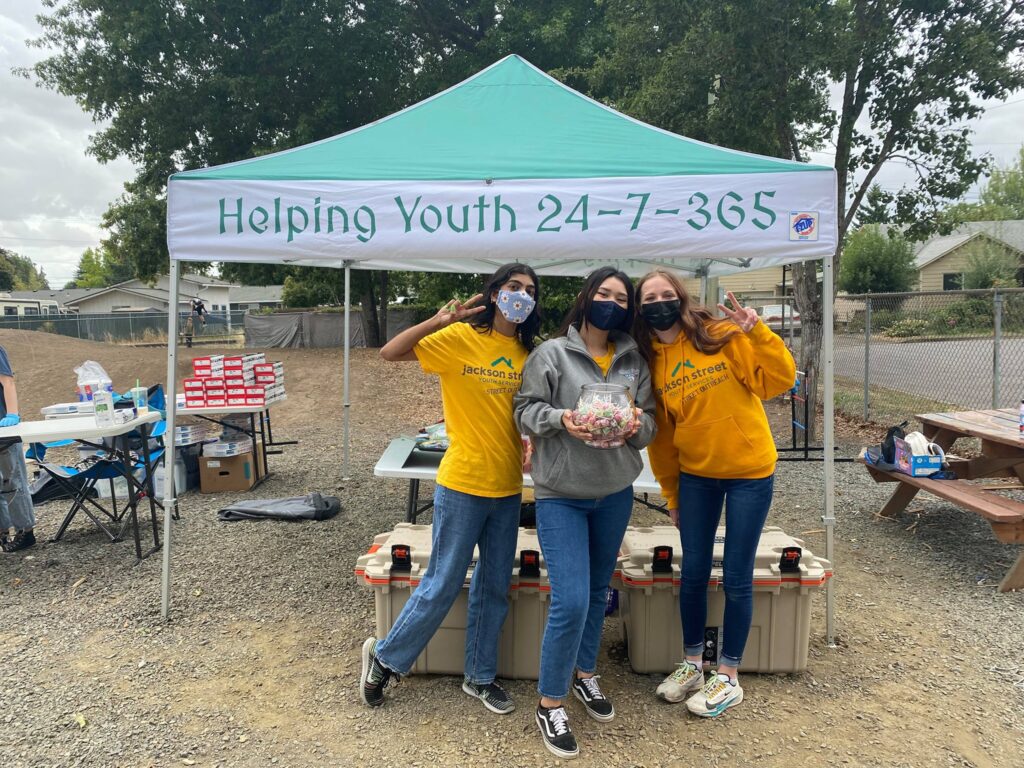
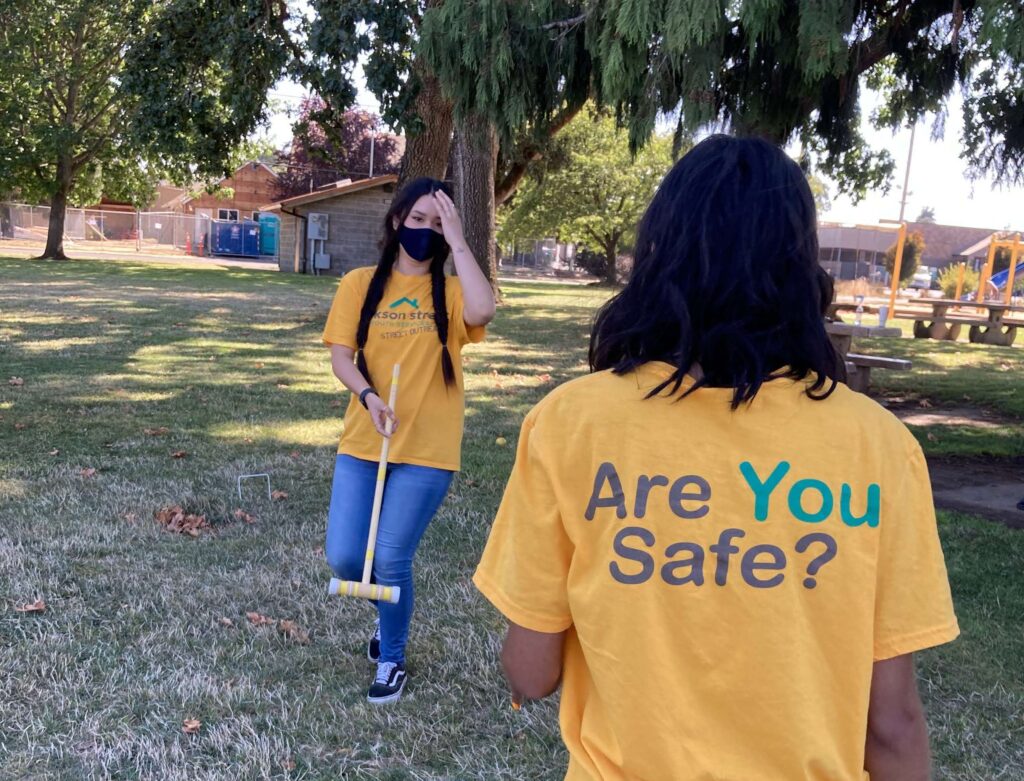
Why are you holding vaccine events for youth and families?
Homeless youth are more at risk of getting sick due to lack of nutrition, high stress due to abuse or neglect, and not having a safe, stable place to sleep. They may also have questions about the virus and vaccines in general, and not know who to ask.
What age can youth get vaccinated without a guardians consent?
We are guided by Oregon Health Authority (OHA) for these events. According to Oregon State law for medical treatment, youth may receive medical care without guardian permission at age 15 and older. Because we often serve homeless youth or youth at risk of homelessness, adult guardians are not always available.
Why at the Skate Park? Is that sanitary and safe?
These youth often don’t have transportation to a doctors office or other difficult to get to locations so we set up these events at a location where it is visible and those without a car can have access. OHA is the field operations team at our vaccine events and are in charge of vaccines and the cleanliness of the station.
Are the youth being coerced?Experienced outreach staff provide information, food, clothing, hygiene products and information about shelter and other services regardless of whether the youth chooses to get vaccinated. We are not sharing personal opinions but are sharing CDC and Oregon Health Authority information. A $5 gift card is extra for those who do so they could have food and drink during the process of recovery after the shot. Remember, these youth may not have a safe home to go to.
How many youth have you served at COVID Vaccine Clinics so far?
Our vaccine events so far served 61 individuals –11 chose to vaccinate.
Tell me more about Volunteerism

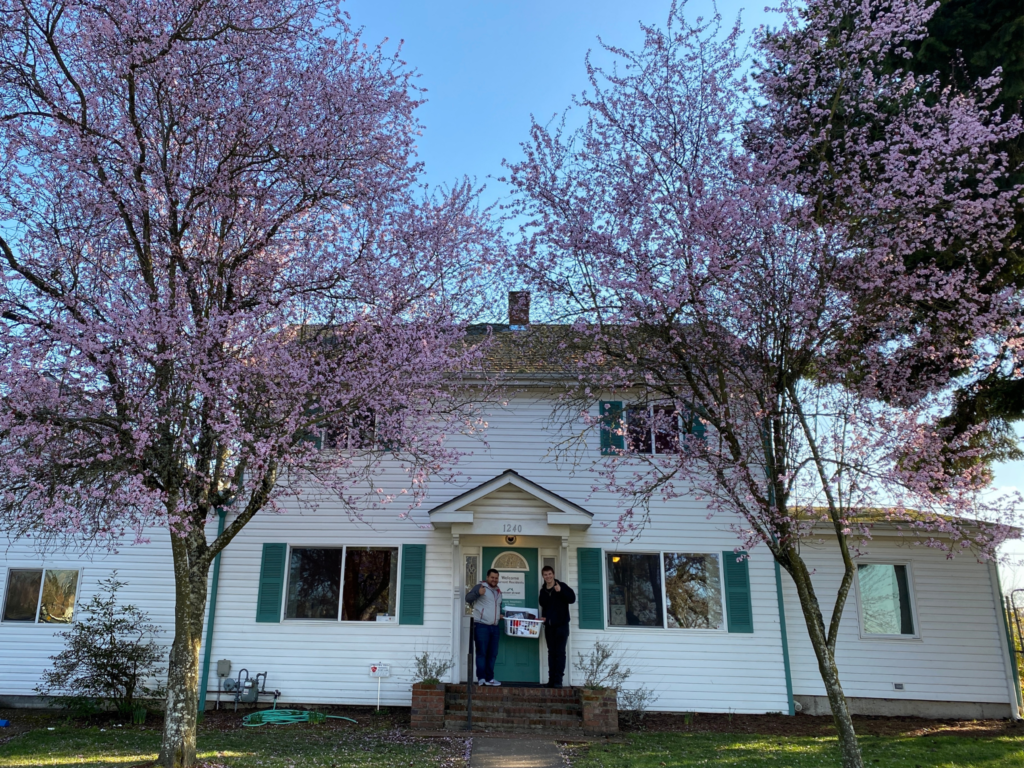

Who can volunteer?
People who are 18 and older who have completed high school, and who have a successful background in working with youth are encouraged to volunteer. All volunteers who work directly with youth must pass a criminal background check, and we prefer that they make a one-year commitment to our volunteer program. There are other opportunities for those with special talents and/or limited time: helping with special events, shelter maintenance, becoming an approved volunteer driver, fundraising, etc.
How many volunteers do you have/need?
We actively receive help from over 50 community volunteers. We are so thankful for the support our volunteers offer to us! We are constantly on the lookout for committed volunteers who can provide on-going support to the youth we serve and the services we provide; we prefer volunteers who can commit for one year or more to our volunteer program. There are various ways to volunteer with us: as a mentor, personal tutor, activity leader, Independent Skills Class teacher, or street outreach volunteer; by helping with house maintenance and yard work (often reserved for larger one-time groups), and occasionally with fundraising/special events.
How can I volunteer?
All volunteers must complete a volunteer application and meet with the Volunteer Coordinator for a criminal background check. Learn more here.